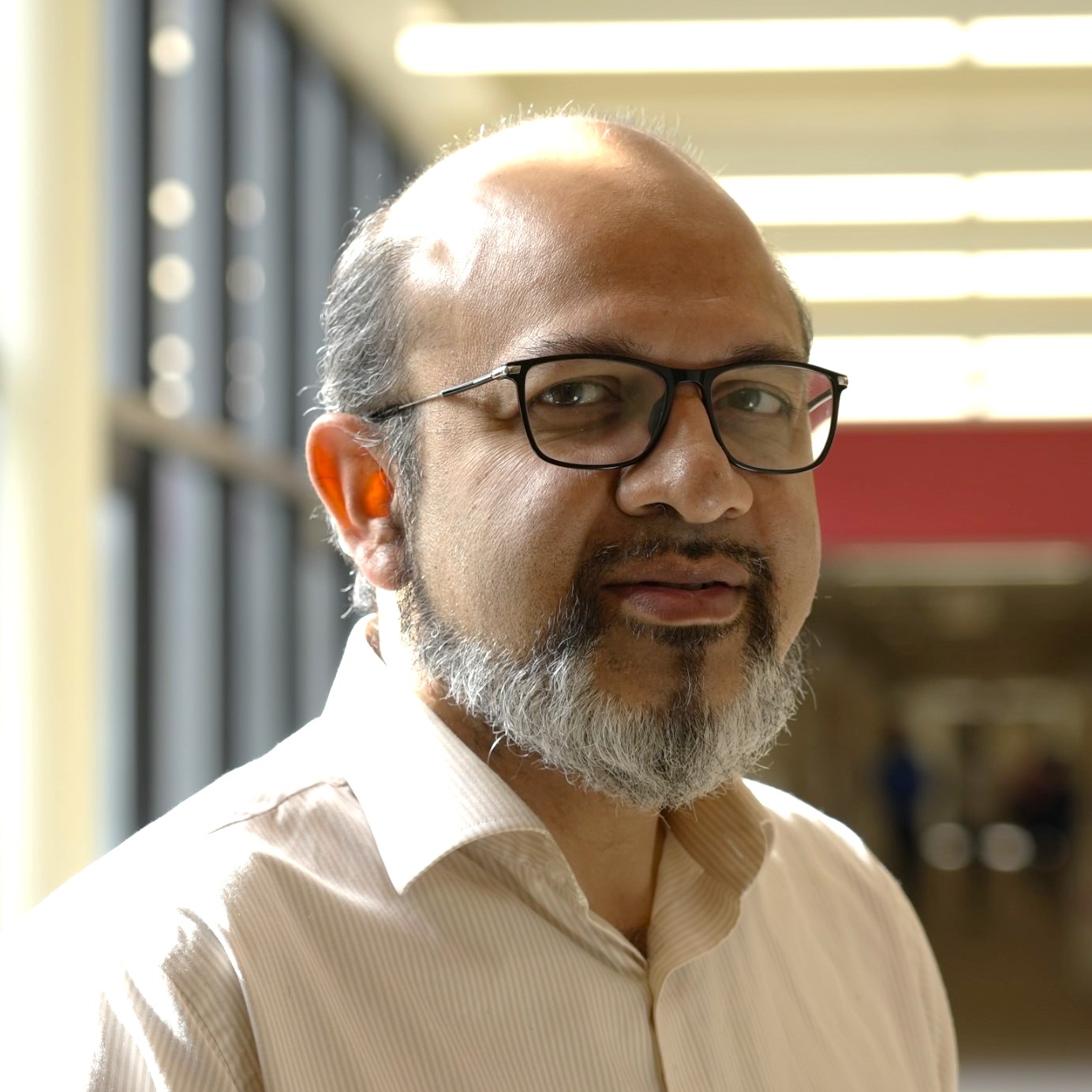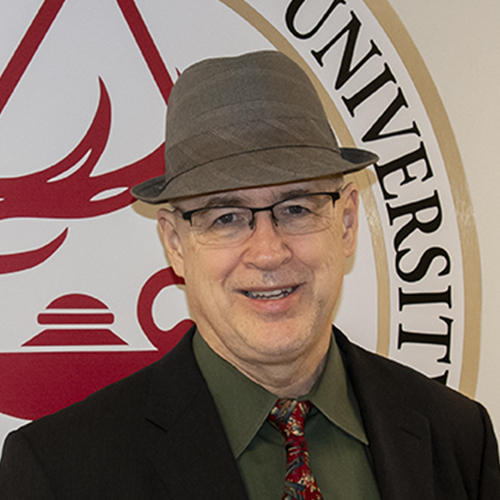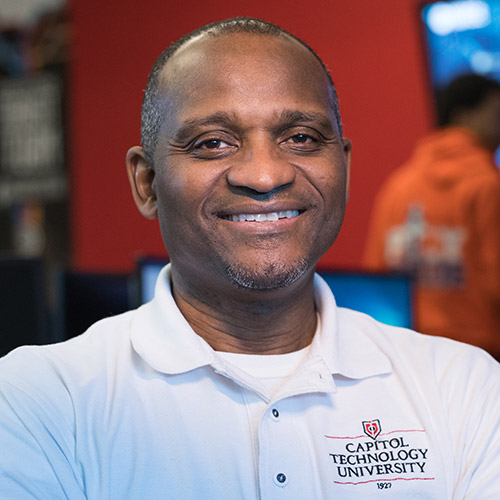Bachelor of Science (BS) in Artificial Intelligence
![]()
Earn a bachelor's degree in artificial intelligence and innovate the future of machine learning.
As technology evolves, artificial intelligence is greatly improving the ways in which humans interact with machines. From autonomy to advancement, AI’s machine learning allows for technology to evolve in ways we never imagined, and educated professionals are needed to steer this progress in an ethical and meaningful way.
Explore what opportunities a degree in AI can offer you:
High Demand for AI Professionals
As we rely more and more on technology, which is evolving at an exponential rate, the demand for AI professionals will continue to surge. And since AI can innovate almost every industry, a degree in this field can future-proof your career and make you a valuable asset to any employer. According to the U.S. Bureau of Labor Statistics, employment in AI occupations is projected to grow 31.4% by 2030, making it one of the fastest growing fields in today’s job marketplace.
The AI Landscape: Applicability and Profitability
A B.S. in AI can lead to an array of promising career paths. Graduates are well-equipped for roles such as computer programmer, IT specialist, software engineer, robotics engineer, data scientist, systems analysts, and more across all industries. Current salaries for AI Engineers can be seen at $120k or more, which is significantly higher than the median annual wage for other occupations. This trend is expected to persist, if not increase, making AI a lucrative field.
Exploring the Intersection of Technology and Human Behavior
The B.S. in Artificial Intelligence explores how humans interact with technology, how AI can improve the human condition, and how AI can offer new methods for automating tasks and preventing human-error. With the infusion of this new technology into our daily lives, and as it absorbs more and more man-made duties, ethical implications and human factors will be important focuses of our curriculum.
Guiding the Future of the Field
AI needs human intervention. While the goal of some AI programs will be self-sufficiency, there will always be a human aspect needed, not only to create software and perform system maintenance, but to inform AI’s problem-solving capabilities as well. New careers in this area are emerging like prompt engineering and other innovative ways to get involved in the field to help guide the future of the industry. A degree in AI can help advance your career and make you an important part of this field’s progression.
A Degree by Design
The B.S. in AI degree is structured for undergraduate students who desire to enter this or similar fields in their professional careers. It also provides a path for computer and data science personnel to explore new ground in this critical area. Graduates will contribute significantly to the field through the creation of new knowledge and ideas that are required to address the current and emerging topics in AI.
For continued study, see our M.Res. in AI and Ph.D. in AI.
Why Capitol?
A “first of its kind” degree
As the first university in Maryland to offer this degree program, Capitol gives you access to education at the cutting-edge of demand, putting you at the forefront of this exciting industry.
Proven academic excellence
Study at a university that specializes in industry-focused education for emerging technology fields, recognized by the National Security Agency (NSA) as a Center of Academic Excellence.
Located in our nation's tech hub
Located near our nation’s technology hub of Washington, D.C. in the DMV area, Capitol provides unique resources, networking with peers and professionals, partnerships with top agencies, and job opportunities and internships to all of our students and alumni.
Support for you
Our dedicated Student Services department provides the resources you need for educational success with staff who are ready to help every step of the way.
Faculty

Dr. Najam UI Hassan
Chair
Dr. Najam Hassan is the Department Chair of Computer Science at Capitol Technology University and a professor. He has been in the IT field for about 35 years. He has a Ph.D. in Business Analytics & Decision Sciences from Capitol Technology University, a dual Master (MBA/MIM) from University of Maryland University College and a master’s in computer science from John Hopkins University. He earned his bachelor's in computer science from the University of Houston Clear Lake.

Chevean Richards
Adjunct Professor
Chevean Richards is a computer science professor with Capitol Technology University. Until the age of 20, he lived in the beautiful island of Jamaica. While there, he attended one of the best high schools on the island, Glenmuir High School (Christian school), where his studies were focused in STEM. Chevean migrated with his father to MD where he would further his educational journey in this field. After learning about the Bridge program that Prince George’s Community College offers to University of Maryland students, he started studying at PGCC in 2013. Chevean graduated from PGCC with several associate’s degrees in Engineering and Economics in 2016. He earned a scholarship and transferred to the University of Maryland College Park, graduating in 2019 with a B.Sc. in Mechanical Engineering and a B.Sc. in Economics. He then transferred to Bowie State University, where he received a HGBI Fellowship to complete a doctoral degree in computer science. In 2021, he graduated with a master's in computer science from Bowie State University. He is currently working towards his doctorate. He is also the recipient of a scholarship to complete an MBA at the Merrick School of Business University of Baltimore. For the past two years, Chevean has worked with Nvidia, the #1 GPU producing company in America and a leader in AI.

Dr. Richard Hansen
Professor of Practice
Dr. Rick Hansen has experience in research, development, and operations for Unmanned Systems (UAS) & Astronautical Engineering (AE). His research focuses on low-cost methods of communication with near space (High Altitude Balloons) and orbital systems (satellites) as well as developing inexpensive sensing platforms using commonly available components. He works with government, industry and academia to ensure the program is addressing their needs and students are qualified for internships and full-time employment. He also oversees activities to develop students' skills, abilities, and knowledge so they can become leaders in their field. Dr. Hansen received his doctoral and bachelor's degrees from Capitol and his master's degree from Johns Hopkins University.

Andrew Mehri
Professor
Professor Andrew Mehri teaches across various programs. Prof. Mehri’s teaching philosophy revolves around students academic development, and personal growth, with an emphasis on building solid skills to meet the demands of employers that rely on Capitol Technology University for excellence.
Prof. Mehri brings many years of engineering design and implementation expertise to the classroom. He also offers contextual learning insights on how engineering and market demands shape the path for innovation and opportunities.

Dr. William Butler
Vice President
Dr. William (Bill) Butler is the Vice President of Cyber Science Outreach and Partnerships at Capitol Technology University. Beginning in 2021, he served as the Vice President of Academic Affairs and previously, as Cybersecurity Chair for 8 years at Capitol Tech. Earlier in his career, he worked in the networking and IT industries as a network engineer and consultant for over 20 years. He also served as a joint qualified communications information systems officer in the U.S. Marine Corps and retired as a Colonel with 30 years of service (active and reserve). Dr. Butler holds a Doctorate in cybersecurity earned from Capitol focusing on preserving cellphone privacy and countering illegal cell towers (IMSI catchers). His expertise and dedication have been instrumental in leading the university's cyber programs, students, partnerships, and funding to excellence and success.
Career Opportunities
The Capitol Commitment
You will find employment within 90 days of graduation. We guarantee it.
Degree Details
Tuition & Fees
Tuition rates are subject to change.
The following rates are in effect for the 2024-2025 academic year, beginning in Fall 2024 and continuing through Summer 2025:
- Full-time tuition is $13,175 per semester, plus fees
- The active duty military tuition rate is $250 per credit, plus fees (additional discounts and scholarships do not apply)
- The retired military tuition rate is $763 per credit, plus fees (additional discounts and scholarships do not apply)
- All full-time students who keep their student account current are promised their tuition will not increase more than 1% per year for four years
- For the cost of living in Capitol Technology University's modern residential facility.
- Academic Fee for UAS-120 $500
Find additional information for 2024-2025 undergraduate tuition and fees.


